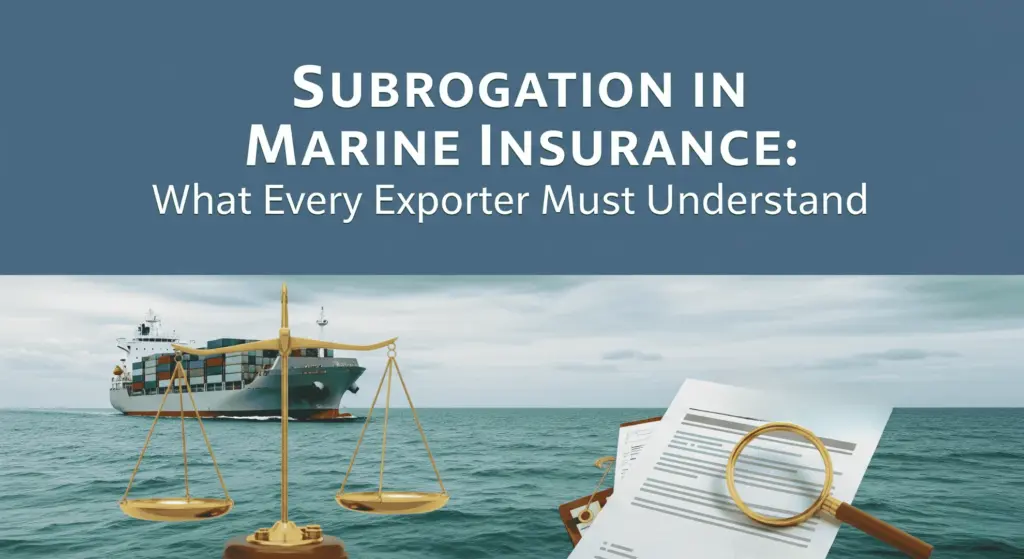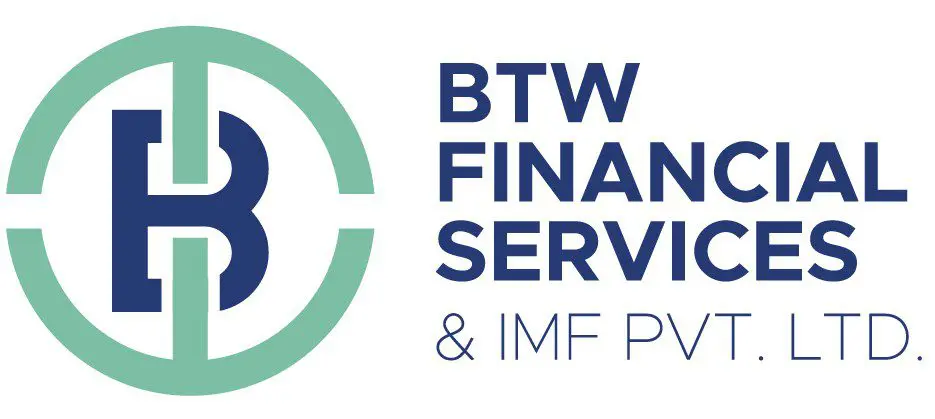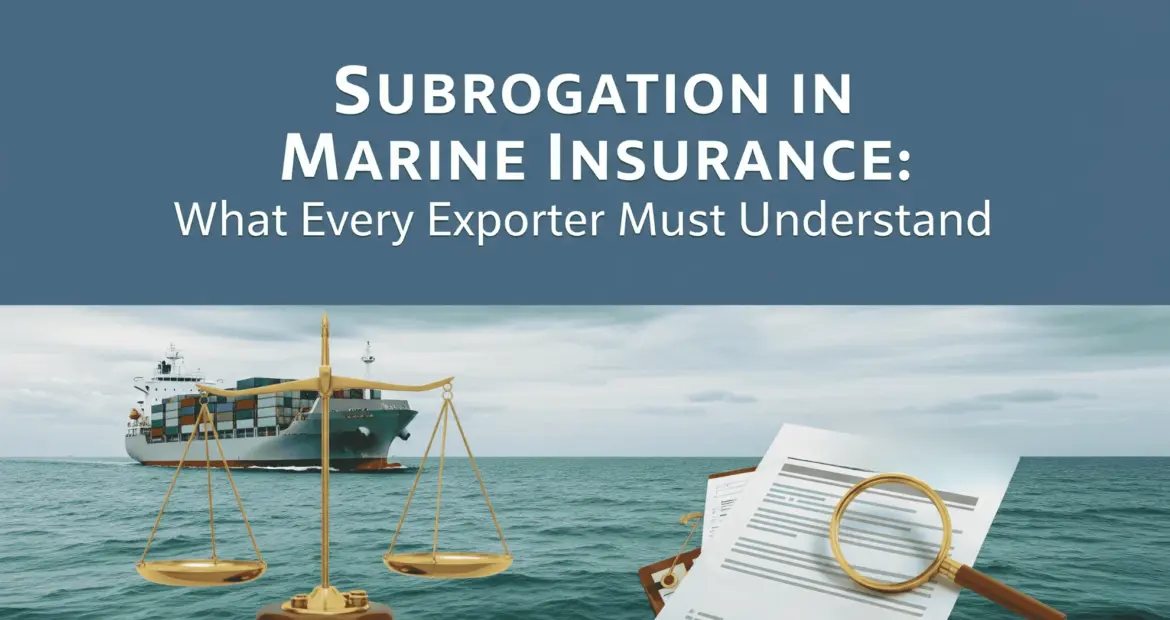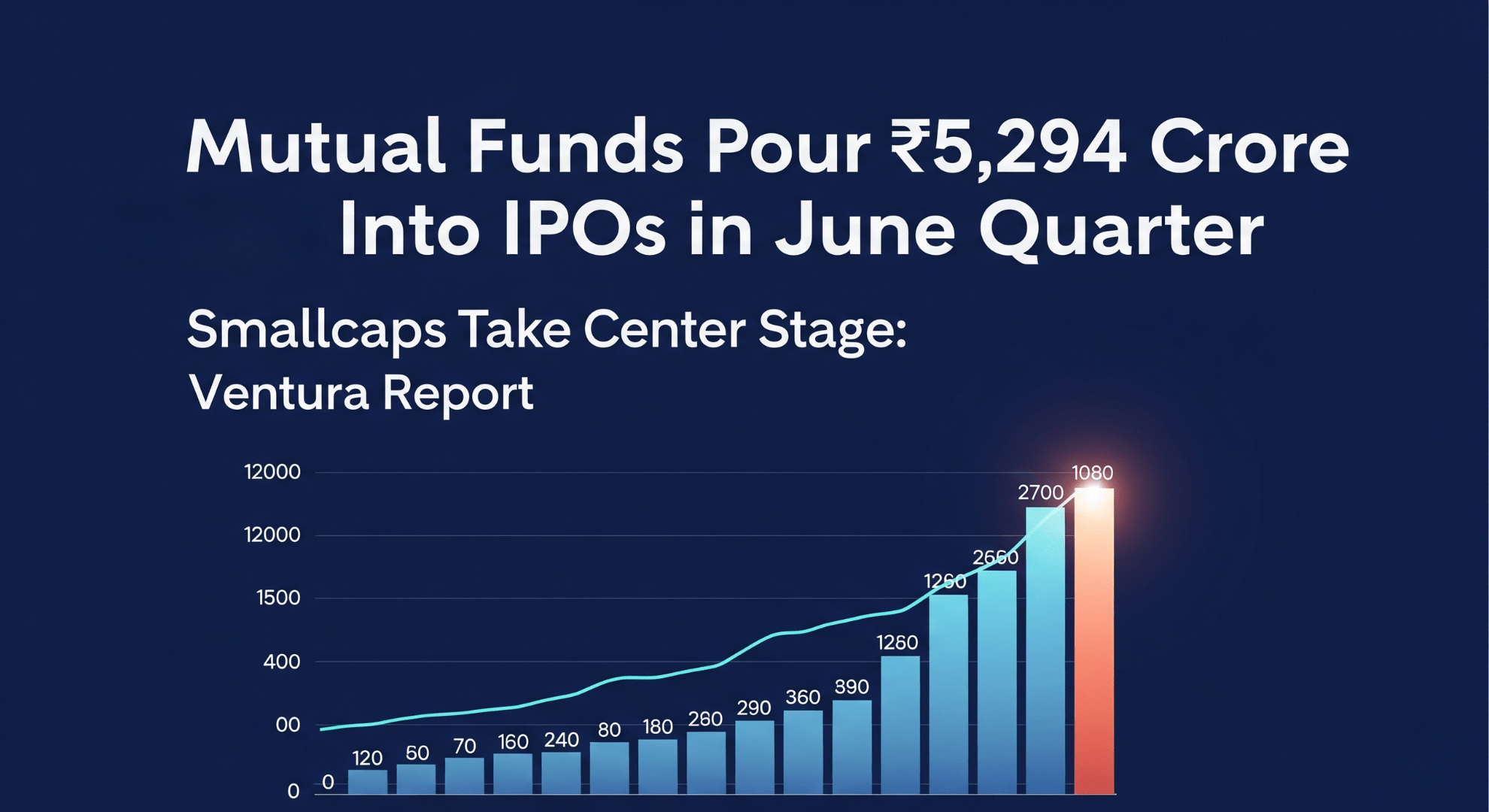
Table of Contents
- What Is Subrogation in Marine Insurance?
- Why Subrogation Exists
- How Subrogation Works in Practice
- Subrogation Under Indian Marine Insurance Law
- Practical Scenarios for Exporters
- Implications for Export Businesses
- Best Practices for Exporters
- FAQs
What Is Subrogation in Marine Insurance?
Subrogation is the legal right of an insurer to pursue a third party that caused an insured loss, after the insurer has compensated the policyholder. In simpler terms:
- The exporter is compensated for their cargo loss.
- The insurer then recovers the same amount from the negligent party responsible.
This prevents the exporter from being paid twice (once by the insurer and once by the third party) while ensuring accountability.
Why Subrogation Exists
Subrogation serves three main purposes:
- Prevents Double Recovery: Ensures policyholders don’t unfairly profit from a claim.
- Holds Negligent Parties Accountable: The actual wrongdoer bears financial responsibility.
- Keeps Premiums Affordable: By recovering losses, insurers reduce overall claims cost, keeping premiums stable for exporters.
How Subrogation Works in Practice
Here’s a step-by-step example:
- An Indian exporter ships electronics overseas.
- Goods are damaged due to mishandling at the port.
- The exporter files a claim under marine cargo insurance.
- The insurer pays compensation.
- The insurer then sues the port authority (third party) for negligence.
If successful, the insurer recovers part or all of the payout made to the exporter.
Subrogation Under Indian Marine Insurance Law
In India, subrogation is recognized under:
- The Marine Insurance Act, 1963 – which outlines insurers’ rights after settlement.
- Indian Contract Act, 1872 – which governs agreements between insurers, exporters, and carriers.
Key point: The right of subrogation arises only after the insurer has paid the claim. Until then, the exporter retains full rights against third parties.
Practical Scenarios for Exporters
- Damaged Cargo During Loading: Insurer settles claim, then sues the port operator.
- Loss Due to Carrier Negligence: Insurer recovers from the shipping line responsible.
- Fire at Inland Warehouse: Insurer pays exporter, later pursues warehouse owners.
Implications for Export Businesses
Exporters must understand that:
- They cannot independently pursue recovery from third parties once insurers have compensated them.
- Cooperation with insurers during subrogation (providing documents, evidence, contracts) is critical.
- Contracts with carriers should be carefully drafted to avoid clauses limiting liability (which can weaken recovery efforts).
Best Practices for Exporters
Keep Documentation Ready: Bills of lading, invoices, contracts, inspection reports.
Understand Policy Terms: Know when subrogation applies and how it impacts recovery.
Avoid Waiver of Subrogation Clauses: Some contracts may try to restrict insurers’ rights—this can increase costs.
Consult Advisors: Legal and insurance professionals can help draft exporter agreements that align with marine insurance protections.
FAQs
Q1. Does subrogation mean exporters lose all rights after a claim?
Yes, once insurers pay the claim, the right to recover from third parties transfers to the insurer.
Q2. Can insurers recover more than they paid out?
No, insurers can only recover up to the amount they compensated.
Q3. What if the insurer recovers more than the payout?
Any excess amount must be returned to the exporter.
Q4. Do all marine insurance policies in India include subrogation rights?
Yes, subrogation is a standard legal principle under the Marine Insurance Act, 1963.





